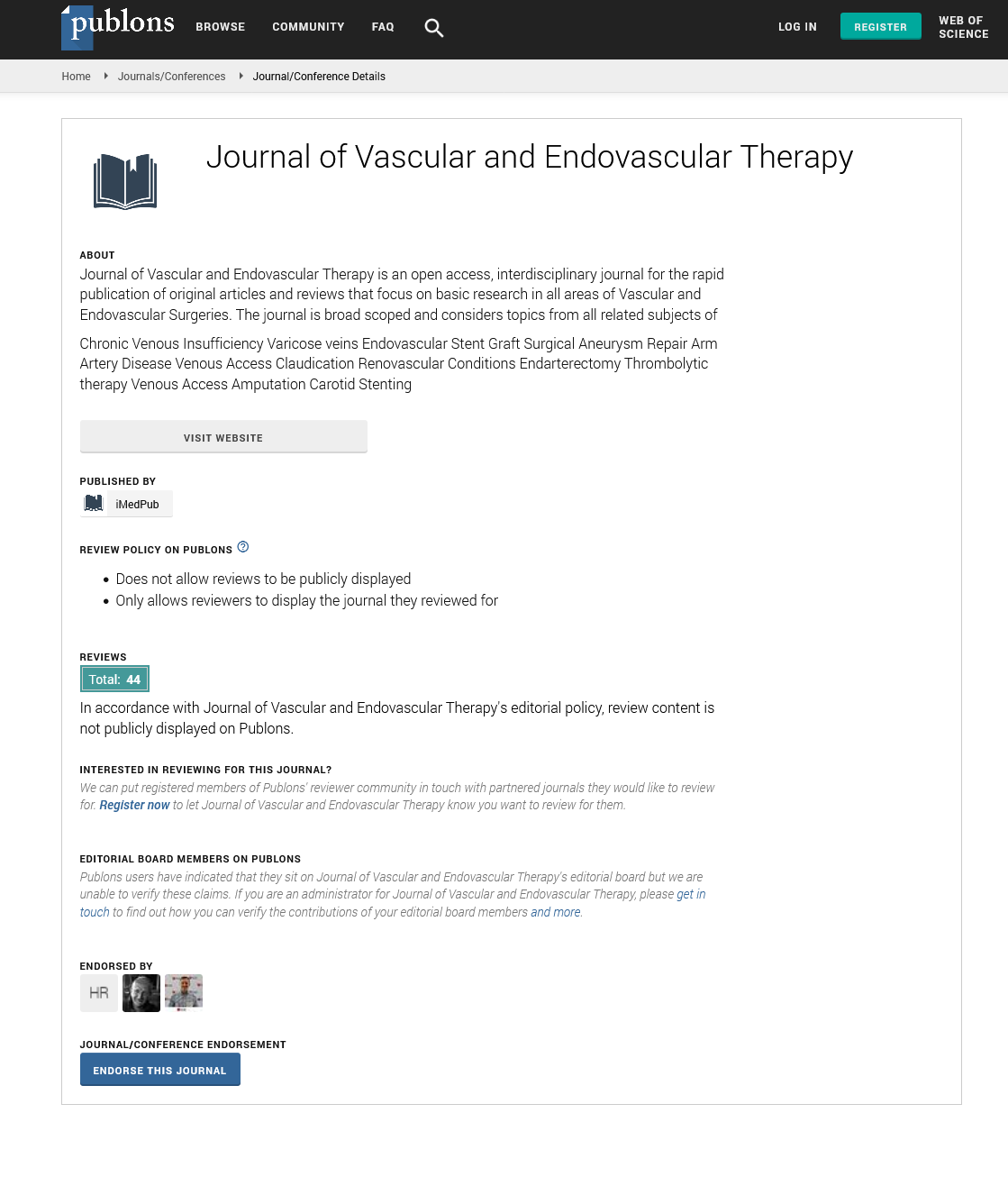ISSN : 2634-7156
Journal of Vascular and Endovascular Therapy
Targeting inflammation in dry eye diseaseâÂÂnovel microRNAs as potential therapeutics
Webinar on 4th World Congress on TRANSPLANT
February 22-23, 2022 Webinar
Joan Ni Gabhann-Dromgoole
Royal College of Surgeons, Ireland
ScientificTracks Abstracts: J Vasc Endovasc Therapy
Abstract
An ability to effectively modulate miR function and thus ocular inflammation has wide ranging therapeutic and commercial implications for a variety of conditions where individuals suffer from DED including age-related DED, pSS, SS secondary to rheumatoid arthritis and SLE, viral keratitis etc. Initial analysis demonstrated that altered expression of miR-21 and miR-155 in peripheral immune cells from SS patients results in the observed increased proinflammatory cytokine production seen in these individuals. These studies also identified novel miRs that are differentially expressed in peripheral immune cells that distinguish between patients with low or severe systemic disease activity, which could aid in patient stratification and targeted therapeutics. Additionally we have identified a novel miR, miR-744, whose expression is significantly increased in conjunctival epithelial cells from pSS patients compared to healthy controls. This overexpression results in significantly reduced expression of Pellino3 a known negative regulator of type I IFN production. Controlled and sustained delivery of ophthalmic drugs continues to remain a major focus area in the field of pharmaceutical drug delivery. As such we next formulated and characterised suitable non-immunogenic particles to deliver miR modulating compounds to ocular surface. Treatment of primary human conjunctival epithelial cells (CEC) with our optimised nanocarrier resulted in decreased miR-744 expression and increased Pellino3 expression. MTT toxicity assay demonstrated that the particles were well tolerated by CEC compared to standard transfection reagents. Our studies indicate that nanomedicines represent an idealised strategy for effective and targeted delivery of miR modulating agents to the ocular surface.
Biography
Dr Joan Ní Gabhann-Dromgoole, Lecturer in Ophthalmology and Immunology, Ocular immunology Research Group (OIRG), School of Pharmacy & Biomolecular Sciences in the Royal College of Surgeons in Ireland. The Ocular immunology Research Group (OIRG) currently focuses on the autoimmune condition Sjögren's syndrome (SS), which is a systemic autoimmune disorder characterized by severe dry eyes and dry mouth SS is most common between the ages of 40 and 60, with women 9 times more likely to suffer from SS than men. Chronic inflammation, accompanied by increased lymphocytic infiltration of exocrine glands, is the pathological hallmark of this disease.
There are currently no effective therapies for SS or diagnostic tests that allow identification of patients who will go on to develop further complications. The OIRG have determined differentially expressed microRNAs in SS patients and suggest targeting these microRNAs may have therapeutic potential.
Google Scholar citation report
Citations : 177
Journal of Vascular and Endovascular Therapy received 177 citations as per Google Scholar report
Journal of Vascular and Endovascular Therapy peer review process verified at publons
Abstracted/Indexed in
- Google Scholar
- Open J Gate
- Publons
- Geneva Foundation for Medical Education and Research
- Secret Search Engine Labs
Open Access Journals
- Aquaculture & Veterinary Science
- Chemistry & Chemical Sciences
- Clinical Sciences
- Engineering
- General Science
- Genetics & Molecular Biology
- Health Care & Nursing
- Immunology & Microbiology
- Materials Science
- Mathematics & Physics
- Medical Sciences
- Neurology & Psychiatry
- Oncology & Cancer Science
- Pharmaceutical Sciences
